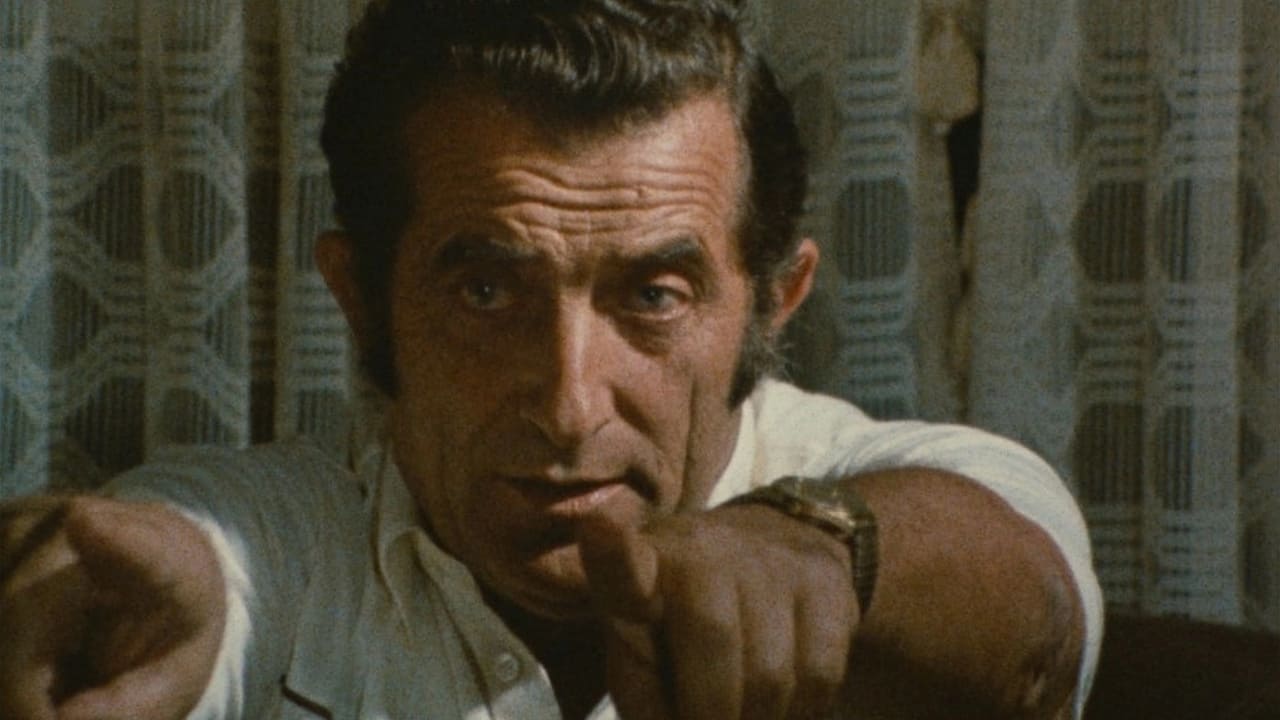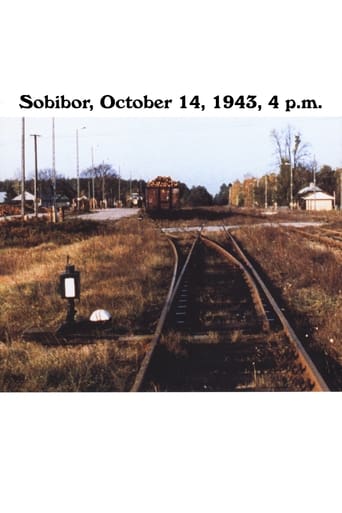

French professor, film editor and director Claude Lanzmann's fifth documentary feature, premiered in the Out of competition section at the 54th Cannes International Film Festival in 2001, was screened in the Forum section at the 52nd Berlin International Film Festival in 2002, was shot on locations in Belarus and Poland and is a French production which was produced by producer Pascal Caucheteux. It tells the story about a Polish-Jewish man named Yehuda Lerner and his experiences in World War II. Distinctly and subtly directed by French filmmaker Claude Lanzmann, this quietly paced documentary which is narrated by the filmmaker, mostly from the interviewees' point of view and translated by French author, lecturer and researcher Francine Kaufmann, draws a telling portrayal of Jewish ghettos and prisoner of war camps in Minsk, Belarus and a journey which started there. While notable for its atmospheric milieu depictions and distinct cinematography by French cinematographers Caroline Champetier and Dominique Chapuis, this narrative-driven story reflects upon what happened one day at a place called Sobibor in Poland seventy-one years ago. This historical testimony of real events which took place during the Second World War in the early 1940s, which is set in the 21st century in Belarus and Poland and which contains interviews conducted by the French filmmaker in the late 1970s which originally was intended to be used for another work which was released in the mid-1980s, is impelled and reinforced by its cogent narrative structure, rhythmic continuity and the telling scene of gesses. A silently informative documentary feature.
... View MoreI read the comments made about this movie by some viewers. Except for the first comment, which is to the point, the others are not even worth a remark. In the movie, Mr. Yehuda Lerner, who lives in Israel, speaks in Hebrew, which I am sure the commentator knows not better than Yiddish, although those are both completely different languages, like say German and English! Being French and Israeli, I want to say in the strongest possible terms that Ms. Francine Kauffman, who translates, does a very professional job and gives a fair projection of what Mr. Lerner expresses. His smile is that of a shy and naïf person thrown into a surrealistic situation. The commentators, who have been lucky enough never to spend even 1 day in a concentration camp should be very wise to refrain from making those aberrant and abhorring remarks on the life on the 3rd-Reich-concentration-camps-planet: here in Israel we had a few years ago the famous or infamous "Ivan Demianouk" or Ivan the Red" trial in Jerusalem : this Ivan played one of the savage and beastly part at Sobibor. So many details given by Mr. Lerner support the testimonies of the witnesses called to the bar at this trial. I am not sure but I think that Mr. Lerner was one of the witnesses.In any case, I wanted to thank Mr. Lanzmann for making this movie, without embellishments tricks or useless images. The testimony given by Mr. Lerner is more than enough, and at the end, the reading of all the transports made from all over Europe to the path of death at Sobibor is extremely true and important against all those, who dare deny even the existence of the Holocaust – Shoah.I recommend this testimony to all especially those, who research and study this terrible and dreadful period in the history of mankind.
... View MoreI think that Lanzmann spoiled a good story: too much text at the beginning of the movie, an endless introduction, a mutilated translation from Yiddish to French... I don't know Yiddish, but you can easily guess that's impossible for the translator to summarize in a sentence two minutes of talk. So what did, in fact, Lerner say, always smiling, even when he was telling horrible things?Lerner's testimony is not convincing either, at least for me. Something in the way he stands in front of the camera makes me wonder if he is telling all the truth. I disagree with the person that spoke about his "modesty": on the contrary I think he is anxious to portray himself as a hero.I felt relieved when the movie finished and naturally I couldn't endure the long, long list of trains that Mr. Lanzmann delightedly recited for five minutes, I guess. A true disappointment.
... View MoreFrom the director of "Shoah," Claude Lanzmann, comes a documentary on the only successful revolt by Jewish concentration camp inmates. The Sobibor uprising in 1943 in Poland was investigated by Mr. Lanzmann many years ago when he was filming "Shoah" and his interviews with a participant named Lerner date from then. The director felt that the Sobibor uprising, which led to the closure of the extermination camp by the Nazis after many escaped, was too important to be a small part of his epic documentary. Now he has returned to this little known story.Although Mr. Lerner is alive and well in Israel, Mr. Lanzmann felt that the much earlier footage of his extensive interview with the heroic survivor was all he needed and, in fact, much of the film is the interview itself.At Sobibor, where Jews were usually gassed almost immediately upon arrival, a small number were selected for slave labor. Knowing that they were doomed and led by an experienced soldier, a Jewish captain of the Red Army, a handful of inmates resolved to kill the few Germans in command of the large and brutal Ukrainian contingent that actually did most of the dirty work.Despite the horror of the situation and Mr. Lerner's subdued but dramatic recitation of his many escapes from German hands before landing in Sobibor, both he and the audience can not resist a smile when he repeatedly emphasizes that the escape plot could never have succeeded but for the Germans' compulsive, indeed fanatical, penchant for punctuality. That was the key to quickly killing them before any discovered what was coming down. Each was lured to a different camp shop with their "appointments" spaced only a few minutes apart.The drama in this documentary is almost wholly in the interview, on-site scenes having a largely marginal quality. The film ends with a long recitation, presumably by the director, of the dates, places of origin and numbers of each of the transports to Sobibor. Chilling - and this infamous monument to madness was only one extermination camp.
... View More